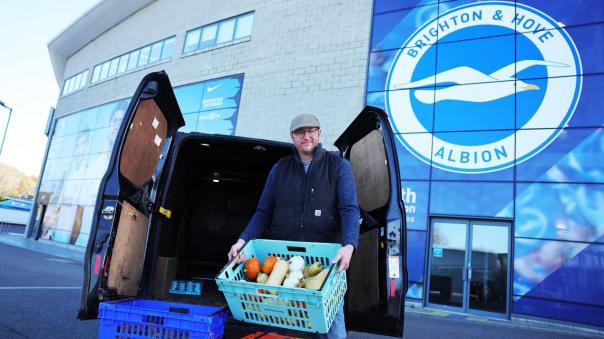
The scheme is overseen by Brighton’s venue partner at the Amex Stadium, Sodexo Live!, which sends food waste to Full Circle Farms, in West Hoathly, West Sussex where the caterer has had 1.5 acres of exclusive farmland for several years.
Regenerative methods are then used to grow crops and produce. Since it began this virtuous circle, the farm has delivered back more than three tonnes of organic vegetables - the equivalent in weight of more than 7,600 footballs - which has been used across venues and events where Sodexo Live! operates.
Since August food waste from the American Express Stadium has joined this process and in turn is helping to feed the thousands of fans and guests that visit each week more sustainably.
Paul Barber, Brighton’s deputy chairman and chief executive, said: “Brighton & Hove Albion is committed to becoming a truly sustainable venue, and excellent initiatives like this from our venue partner Sodexo Live!, will help us to achieve this.
“Not only does this help our food waste credentials, but it also helps to create many delicious dishes that our fans and guests love each time they visit the American Express Stadium.”
Tom Morphew, chief executive of Full Circle Farms, added: “Our aim is to reduce and re-think food waste while supplying these venues, like Brighton & Hove Albion with an amazing range of seasonal, and sustainable, fruit and vegetables from the farm.
“Regenerative farming has numerous advantages, including educating people about where their favourite ingredients come from and how being part of nature benefits people’s health and wellbeing.”
Once received the food waste is composted on-site. When it has been at a temperature of 75-80 deg C for a minimum of two weeks, the compost is delivered to the farm to feed the soil to help grow the next set of crops. These include cucumbers, kale, courgettes and onions.